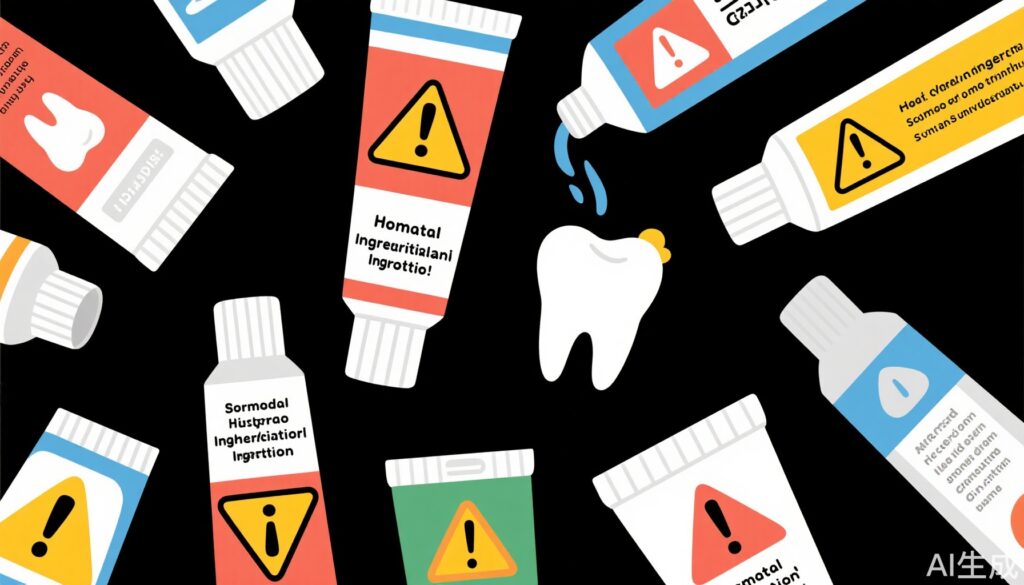Introduction: Are Expensive Toothpastes Really Necessary?
Many consumers have noticed that toothpaste prices have been rising steadily, often accompanied by claims of various benefits. However, how much of this increase is justified, and do more expensive toothpastes actually offer better oral health? This article investigates the truth behind toothpaste pricing and efficacy.
1. Do You Really Need Expensive Toothpaste?
Toothpaste is composed of multiple ingredients such as abrasives, humectants, foaming agents, thickeners, and preservatives. Among these, abrasives play the primary role in cleaning teeth. A study conducted by the Beijing Consumers Association sampled 64 toothpaste products from 28 brands, including fluoride and herbal varieties. Despite price differences, the quality among these products showed minimal variation.
The price differences mainly come from added purported benefits like whitening, periodontal improvement, or sensitivity relief. These added functions can drive prices from tens to hundreds of yuan, but their actual benefits for oral health are limited. Experts suggest that over 90% of toothpastes remain basic products, but the market is increasingly filled with function-focused products, thus raising prices.
Ultimately, toothpaste’s primary role is to clean the mouth; additional benefits are supplementary. Without specific dental needs, a regular toothpaste suffices.
2. Four Common Misconceptions About Toothpaste
With the increasing variety of toothpastes on the market, some are even marketed with therapeutic claims. This sometimes leads patients to self-medicate improperly, delaying timely treatments. Here are four common misleading claims:
– Herbal Toothpaste Stops Bleeding: Many toothpastes claim herbal ingredients can stop gum bleeding and reduce inflammation. However, no scientific evidence supports that herbal toothpaste effectively improves gum bleeding or oral inflammation. Gum bleeding is a warning sign of oral health issues; simply stopping bleeding temporarily does not address the underlying problem and may worsen it.
– Toothpaste Can Treat Helicobacter pylori: Some toothpastes claim to combat Helicobacter pylori (H. pylori). However, toothpaste acts only in the oral cavity, whereas H. pylori primarily inhabits the stomach lining. Even if toothpaste kills bacteria in the mouth, it cannot affect stomach bacteria.
– Dipping Toothpaste in Water Reduces Effectiveness: It is often said that water dilutes toothpaste’s efficacy. In reality, water activates some ingredients such as peroxides in whitening toothpastes, enhancing their action. Whether toothpaste is dipped in water is mostly a matter of personal habit.
– Long-term Use of One Toothpaste Causes Resistance: Basic toothpastes focus on removing plaque and debris and contain no active drugs, so resistance is not a concern. However, toothpaste with medicinal ingredients (e.g., whitening agents, anti-inflammatory, or antibacterial compounds) should not be used continuously without rotation to prevent negative effects on oral health.
3. Four Ingredients to Avoid When Choosing Toothpaste
With many brands and formulations available, some toothpastes harbor potentially harmful components. Consumers should be cautious of the following four ingredients:
– Titanium Dioxide (TiO2): Classified as a Group 2B carcinogen (possibly carcinogenic to humans) by the International Agency for Research on Cancer in 2017, titanium dioxide has shown carcinogenic effects in animals. Although human risk remains unclear, some experts warn of health risks with long-term use.
– Triclosan: Commonly added to anti-cavity toothpastes, triclosan has been shown in animal studies to disrupt gut microbiota and increase intestinal inflammation and tumor risk. It can also react with chlorinated water to form chloroform, a harmful compound. Although its carcinogenicity is debated, vulnerable groups such as pregnant women, nursing mothers, children, and the elderly should avoid triclosan-containing toothpastes.
– Alcohol: Some toothpastes include alcohol for breath freshening. Prolonged use may disrupt oral microbiota balance, leading to other oral health problems.
– Aspartame: Often added to strongly scented toothpastes, aspartame is a sweetener classified as a Group 2B carcinogen. It is advisable to avoid toothpastes containing aspartame.
Additionally, consumers should pay attention to toothpaste shelf life, ideally using it within three months after opening to prevent chemical degradation that could pose health risks.
Conclusion: Make Informed Choices for Oral Health
Toothpaste is a fundamental part of oral hygiene, but consumers should be discerning about marketing claims and ingredient safety. Regular toothpaste without excessive additives is sufficient for most people. Avoiding potential carcinogens and rotating toothpaste types can help maintain oral health without unnecessary risks. Always consult dental professionals for specific oral health concerns rather than relying solely on toothpaste claims.



